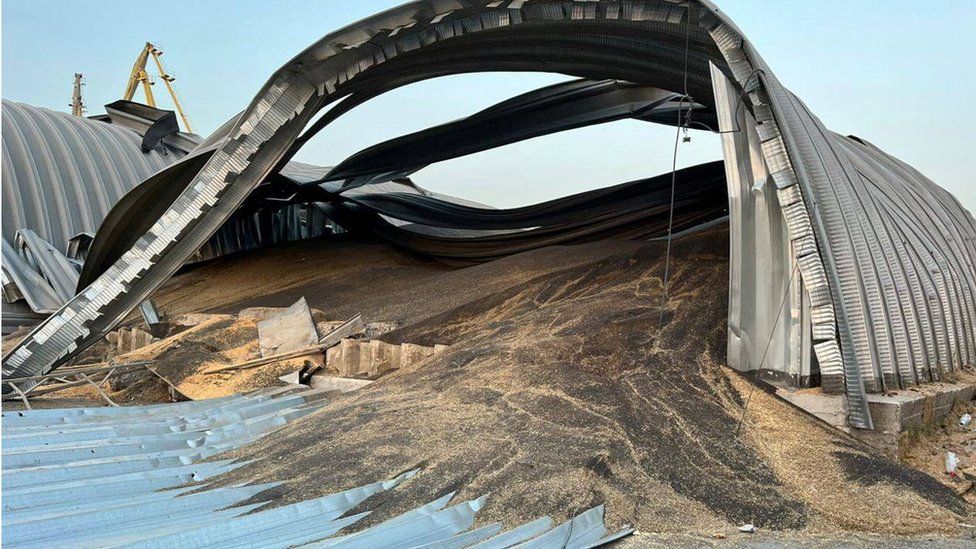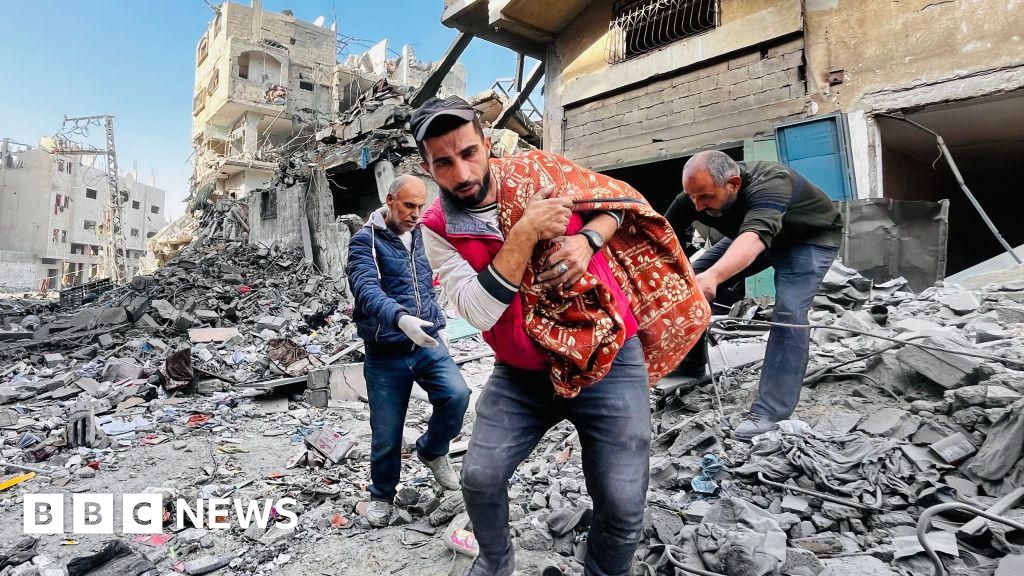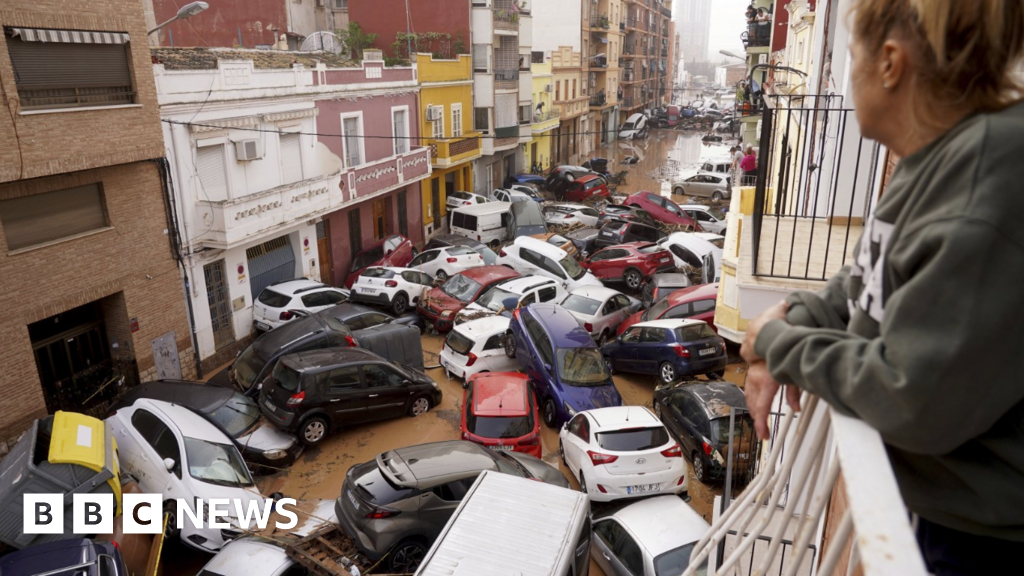ARTICLE AD BOX
 Image source, Reuters
Image source, Reuters
A grain warehouse in Odesa was heavily damaged recently by a Russian drone attack
By Paul Adams
BBC News Kyiv, Ukraine
Nightly Russian drone attacks on Ukraine's River Danube ports are threatening to choke off one of Kyiv's vital economic lifelines.
Attacks which began over a month ago have intensified in recent days.
Each morning brings news of fresh explosions at grain storage facilities and port infrastructure in and around the inland ports of Reni and Izmail.
Ukraine is a major global supplier of grain, but the war has severely disrupted supplies.
On Thursday night, 14 Russian Shahed drones were destroyed over the Odesa region, which includes the Danube ports, according to regional governor Oleg Kiper.
But enough drones get through to cause considerable damage.
"More than 270,000 tonnes of grain has been destroyed during these attacks," Denys Marchuk, Deputy Chairman of the Ukrainian Agrarian Council, told the BBC.
"They destroy the infrastructure, elevators where grain for export to foreign markets is stored."
On Thursday, President Volodymyr Zelensky appealed for help during a call with the British Prime Minister, Rishi Sunak.
"We need partners to help us strengthen the air defence of the Odesa region," he tweeted afterwards.
Russia began to focus its drone attacks on the Danube ports after pulling out of the internationally brokered Black Sea Grain Initiative in mid-July, arguing that Russia's own agricultural exporters were being disadvantaged.
The initiative was designed to give safe passage to ships carrying grain to global markets.
Since Russia pulled out, only a handful of vessels, none of them carrying grain, have been able to sail from Ukraine's Black Sea ports.
As a result, the Danube route has become more vital than ever.
In theory it is safer, as vessels entering the Black Sea from the mouth of the river immediately enter Romanian territorial waters.
Most head for the Romanian port of Costanta, for shipment onwards.
Mr Marchuk said it's obvious why Russia is attacking the Danube ports.
"Russia is doing this because the reduction of exports from Ukraine potentially opens up new foreign markets for them," he said.
"They want to conquer new markets that Ukraine will not be able to supply."
Grain is still being loaded at Reni and Izmail, he said, but the threat of Russian attacks is driving up insurance costs and deterring shipping companies.
In June and July, Ukraine exported around two million tonnes per month through the Danube, with plans to raise this to around three million.
Despite the attacks, exports actually rose in August, to 2.5 million tonnes, but with shipping costs rising, it is becoming less and less worthwhile for Ukraine's farmers.
Denys Marchuk said it was impossible to predict what the future would bring.
"There have been too many attacks in the last five days," he said. "It's very intense."
He echoed the president's call for international assistance.
"We would like to hope that they [the Russians] will not be able to keep doing this and that with the help of our partners we will be able to protect the port infrastructure."
The Black Sea Grain Initiative remains on hold, despite recent efforts by Turkey's President, Recep Tayyip Erdogan, to persuade Vladimir Putin to change his mind.
For the time being, the Danube route is by far the most important alternative.
Other routes exist, by road and rail, but are less efficient.
Under pressure from their own farmers, Hungary, Poland, Bulgaria, Romania and Slovakia have all banned Ukrainian grain imports, but the EU has created transit corridors to enable access to markets further west.
Since the River Danube forms part of Ukraine's border with Nato, Russia's attacks have an added geopolitical dimension.
At least one Russian drone has been filmed exploding across the river from Izmail, inside Romania.
When Ukrainian officials pointed this out, earlier this week, Romania initially denied it.
Ukraine's Foreign Minister, Dmytro Kuleba, appeared furious, saying it was "pointless to deny that something fell there."
Nato members, he suggested, were turning a blind eye to Russia's actions.
"The partners tend to try not to escalate the interpretation of certain events," he said, "in order not to be involved in a direct conflict."
Romania eventually admitted that some Russian drone fragments had been found on its side of the river.
The government in Bucharest, which has strongly condemned Russia's attacks on Ukraine's Danube facilities, clearly doesn't want the incident to get out of hand.
The bottom line: no-one in Romania wants to invoke Article 5, Nato's collective defence principle, over a few fragments of a Russian drone lying in a field.

 1 year ago
10
1 year ago
10








 English (US)
English (US)